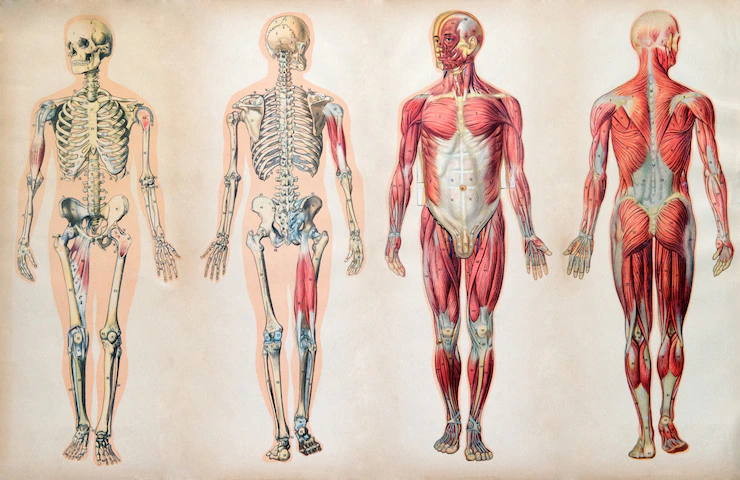How Automation Makes a Positive Turning Point for Accountants
5 Mins Read
Published on: 24 April 2021
Last Updated on: 15 November 2024

toc impalement
Long gone are days when accountants had to fumble with ledgers and paper-based accounting practices. Automation is taking giant strides, pulling in a massive transformation in almost every industry. The accounting industry is also under the cover. The way accounting and bookkeeping worked a decade ago is a different practice from the way it works now. Ideas that were once science fiction have now turned into reality and have become inevitable in our lives. Automation is today’s drive.
This read will throw light upon how automation benefits accountants without compromising on the services.
What is Accounting Automation?

Accounting automation is the process of eliminating manual efforts to the maximum extent possible and drawing desired outcomes, precisely and often instantly in the accounting cycle. Have a look at Accountancy in the UK, Most accountants and CPAs embrace automation for their accounting as it eases and speeds up the way they work to a considerably great extent, thus allowing them to focus on other things that really matter.
Why should Accountants Embrace Automation?
One of the greatest impediments faced by the accounting team is the amount of time spent on repetitive tasks like data entry, 3-way matching, and other redundant exercises. Automation offers accountants and bookkeepers the opportunity to focus on delivering more value to the clients.
Manual entry is the hardest hurdle that is slowing down the process of accounting teams. Keying each value, each digit from each column into your accounting software checking at the records that you have on hand is painfully tiring.
And it goes without saying that however vigilant the data entry is made, errors are inevitable. There are high chances for the digits to have wrongly typed and to have a column missed during the manual entry.
Inaccuracy in such an earnest domain as accounting is not a joke and puts the credibility of your reports into question. This will cause you a great mess at the time of reconciliations and financial closings. These errors are not just annoying, but also costly in terms of identifying and fixing them. All these could inflict on declining client satisfaction. Because things that are most expected from an accountant are accuracy and reliability.
Narayanan Vaidyanathan, Head of Business Insights at the ACCA, UK comments, “The move to automation isn’t a choice, but a necessity”, he adds, “Traditional and fragmented ways of input and reconciliation keel over quickly”.
How Automation Makes Accountants’ Lives Easier
Timely Service

Reports convey that about 63% of accounting and bookkeeping teams’ time is spent on manual data entry. By embracing automation, you can ride on the speed and timeliness of the information it offers you. This opens up opportunities to change the way you work with your clients. It curtails the amount of time spent on the manual process of entering and manipulating the data. Using automation, you shall render agile service that will add up to your career growth.
Bridge the Skill Gap with Clients
Many small businesses still rely on paper-based records and Excel sheets. You can throw some light on the benefits and efficiencies of digital and automatic approaches. Conventional practices can put more burden on their shoulders, as well as yours, in times of revised regulations. This may hamper their ability to stay in the competition.
When your clients switch to automation, it is an additive advantage for you as it paves way for faster and more accurate records. Accurate and mess-free records lighten your work burden and keep everything plain sailing.
Retain Inspiring Talent
![]()
The success story of your firm greatly relies upon a strong talent pool. Lack of automation will drive away inspiring talents who are assigned repetitive data entry tasks. Ensuring that your employees are engaged in productive tasks and their enjoyment at work is a key factor to maximize retention. By implementing automation tools, you facilitate your staff to spend more time with the clients and offer valuable advice to them. This will also result in client retention. Also, by freeing up their time, you shall train and cross-skill the team so that the resources can be shared fluidly.
Sweat-free Reconciliation
Erroneous records will not only question the credibility of the reports but also cause a catastrophe at the time of reconciliation and tax seasons. Reports convey that data entry inaccuracy accounts for 33% of wasted time in accounting firms. When the manual entry is automated, you will receive fresh and clean records for accounting. This will pave the way for a mess-free reconciliation. When the real-time transactions are directly sent to the accounting software, there are no rooms for errors and so you can enjoy perfect reconciliation.
De-cluttered Workflow

When you switch to automation, you will have a clear headspace to work. Automation at every stage is going to ensure absolute clarity. Even when something gets stuck somewhere, you don’t have to burn the midnight oil to locate and rectify them as you do in the manual process. The system spots the error, places it occurred, and will moreover suggest you some solution at times. So, there will be absolute transparency throughout the workflow for a fast and easy button-up.
Adaptability to Suit Any Firm
Accounting practices vary with each firm. Depending on the structure of the firm, the age profile of the partners, and the workflow that they run with, you will manipulate your accounting practice to drive better and faster results. In such cases, automation will aid you to adapt to the manipulations in your workflow. It molds itself around how you and your clients work, without adding complexity or cost. You can tune your automation so that it runs alongside the strategy you formulate.
Best Accounting Automation Software

Once you have made up your mind to embrace accounting automation, the next question that pops up will be how to choose the right products for automation. There are a handful of products scattered on the web stores, but only a few are reliant and effective.
QuickBooks is the most favored accounting software widely used by most accountants and small businesses from coast to coast. It can do the complex number crunching for you and can help you with invoicing, tracking bills and expenses, inventory management, profit-loss reports, payrolls, and taxes. The following products are some of the #1 user-rated and Intuit authorized applications you can supplement with your QuickBooks for your bookkeeping and accounting.
SaasAnt Transactions is a great tool that assists you with bulk imports, exports, and deletes in QuickBooks. PayTraQer is a powerful auto entry tool that syncs your real-time payment details from your payment processor to QuickBooks, without any manual intervention. If you haven’t tried these products yet, try exploring them with a 30-day free trial and break free from manual processes so that you can perform at your best.
Wrap Up

Having said everything, the bottom line is that automation in accounting is going to be inevitable in the next decade, just like we have computers today. So it is better to make peace with this new norm and tune it as it fits your business benefits. Stay in the know of recent trends in accounting automation and learn and weigh the automation products carefully before you let them automate your accounting. Grasp the right automation and let your service take a positive turn with it.
Read Also:


















Comments Are Closed For This Article